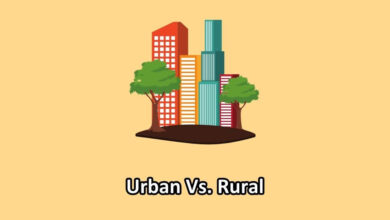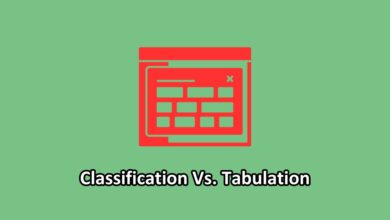In today’s dynamic work environment, attracting and retaining top talent is crucial for the success of any organization. Compensation and benefits play a pivotal role in this equation. They form the cornerstone of an employee’s satisfaction and motivation, impacting their overall performance and commitment to the company.
A well-structured compensation and benefits package not only attracts skilled professionals but also fosters a positive workplace culture.
Compensation Vs Benefits (A Comparison)
| Compensation | Benefits |
|---|---|
| Compensation refers to the monetary rewards and benefits that employees receive from their employers in exchange for their work and services. | Benefits encompass non-monetary perks and offerings provided by employers to enhance the overall well-being and job satisfaction of employees. |
| Compensation primarily involves providing employees with tangible, monetary rewards, such as a fixed salary, performance-based bonuses, or profit-sharing. | Benefits encompass a broad spectrum of non-monetary perks and offerings, including health insurance coverage, retirement plans, etc tailored to enhance the overall employee experience. |
| Compensation predominantly addresses the immediate financial needs of employees, offering prompt and tangible rewards to recognize their contributions. | Benefits, particularly retirement plans and stock options, are strategically designed to focus on fostering the long-term financial security and well-being of employees. |
| Compensation is characterized by its tangible nature, easily quantifiable, and represented by specific dollar amounts in the form of salaries, bonuses, and other direct monetary payments. | Benefits extend beyond mere monetary value, providing intangible advantages such as peace of mind through comprehensive insurance coverage, enhanced work-life balance, and overall job satisfaction. |
| Compensation is primarily cash-oriented, involving direct monetary payments to employees for their work, thus contributing to their financial stability. | Benefits often take the form of various services and offerings, including health and wellness programs, training opportunities, employee assistance programs, etc. |
| Compensation, being predominantly monetary, is typically subject to income tax, with earnings directly impacting an employee's taxable income. | Benefits often enjoy favorable tax treatment, as certain offerings like health insurance premiums or contributions to retirement plans may be tax-deductible. |
What is Compensation?
Compensation refers to the total rewards an employee receives for their contribution to an organization. It goes beyond the base salary, encompassing various elements such as bonuses, incentives, and non-monetary perks.
Essentially, it is the monetary and non-monetary value an employee gains from their employment. Compensation is a crucial component in attracting, retaining, and motivating employees within an organization.
Components of Compensation
1. Salary and Wages
The foundation of compensation lies in the employee’s regular pay, commonly known as salary or wages. This fixed amount reflects the employee’s skills, experience, and the nature of their role within the organization. It forms a consistent income source, ensuring financial stability for the employee.
2. Bonuses and Incentives
In addition to the base pay, organizations often use bonuses and incentives as tools to motivate employees. These may be tied to individual or team performance, encouraging a higher level of dedication and effort to achieve organizational goals.
3. Non-monetary Compensation (e.g., Stock Options)
Non-monetary compensation includes benefits that don’t involve direct cash payments. Stock options, for instance, provide employees with a share in the company, aligning their interests with the organization’s success.
What are the Benefits?
Benefits are rewards provided to employees beyond their regular salary or wages. These offerings significantly contribute to an employee’s well-being and job satisfaction. Benefits are integral to creating a positive work environment and fostering a sense of loyalty and commitment among the workforce.
Types of Benefits
- Health and Wellness Benefits: Health insurance, wellness programs, and paid time off are essential components of health and wellness benefits. These offerings contribute to both physical and mental well-being, creating a supportive work environment.
- Retirement Benefits: Retirement benefits, such as 401(k) plans, assist employees in building a secure financial future. These long-term investments enhance the overall job satisfaction of employees, knowing their organization cares about their post-employment life.
- Other Fringe Benefits: Fringe benefits cater to the diverse needs of employees. Flexible schedules and remote work options contribute to a healthy work-life balance, showcasing an organization’s commitment to employee satisfaction and productivity.
Key Differences Between Compensation and Benefits
- Monetary vs. Non-monetary: Compensation primarily involves monetary rewards, such as salary and bonuses, while benefits encompass non-monetary perks like health insurance and flexible work arrangements.
- Tangible vs. Intangible: Compensation is tangible and easily quantifiable, represented by a specific dollar amount. Benefits, on the other hand, offer intangible value, such as peace of mind through insurance coverage or a sense of work-life balance.
- Taxable vs. Tax-Advantaged: Compensation, being primarily monetary, is typically subject to income tax. In contrast, benefits often enjoy favorable tax treatment.
The Role of Compensation in Employee Motivation
Link Between Pay and Motivation
I believe that compensation serves as a powerful motivator. When employees feel adequately rewarded for their efforts, it positively impacts their motivation levels. Recognition of their hard work through fair compensation fosters a sense of value and commitment.
Impact on Job Satisfaction
According to research, job satisfaction is closely tied to compensation. Employees who feel fairly compensated are more likely to be satisfied with their jobs, leading to higher retention rates and increased productivity.
The Impact of Benefits on Employee Well-Being
Health and Wellness Benefits Promoting Work-Life Balance
I believe that health and wellness benefits contribute significantly to employee satisfaction. By providing access to healthcare, wellness programs, and paid time off, organizations show a genuine concern for their employees’ well-being, fostering a positive work environment.
Retirement Benefits and Long-Term Financial Security
Retirement benefits play a crucial role in ensuring long-term employee well-being. Knowing that the organization supports their financial future enhances the overall satisfaction and loyalty of employees.
Conclusion
In conclusion, compensation and benefits are integral components of an effective employee engagement strategy. By understanding and optimizing both, organizations can create a workplace that attracts, retains, and motivates top talent.
In the competitive landscape of today’s job market, organizations must recognize the significance of a comprehensive compensation and benefits strategy. It’s not just about attracting employees but fostering a culture where they thrive, ultimately benefiting both the individual and the organization.



